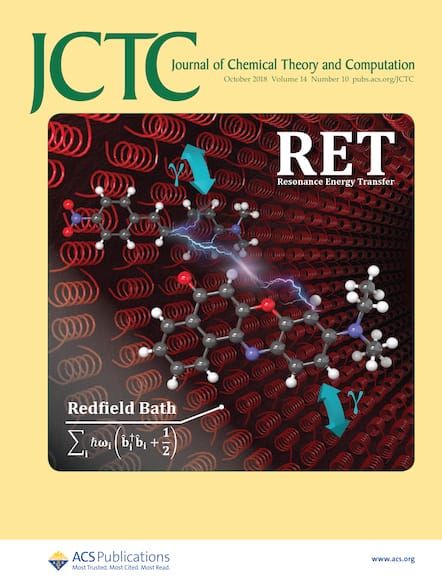Python Library for Monte Carlo Simulations with Ab Initio and Machine-Learned Interatomic Potentials.
IF 5.5
1区 化学
Q2 CHEMISTRY, PHYSICAL
引用次数: 0
Abstract
There is a growing need in the simulation community for software that provides a transparent, reproducible, usable, and extensible (TRUE) Monte Carlo (MC) simulation framework employing energies from ab initio methods and machine-learning interatomic potentials (MLIPs). We introduce a Python library (ASE-MC) that adds Monte Carlo functionality to the Atomic Simulation Environment (ASE) package. Now, we can combine the powerful tools used to build systems and perform ab initio and MLIP in ASE with MC simulation algorithms to sample the configurational space with a concise Python script. After presenting the design philosophy, we demonstrate the flexibility of our approach using selected examples. These example simulations include liquid water described with a message-passing MLIP in the canonical and isothermal-isobaric ensembles, sampling the characteristic dihedral angle of biphenyl and comparing an MLIP to first-principles calculations, and a grand canonical Monte Carlo simulation of ammonia adsorption on Pt(111). These examples showcase the main features of the software, which include flexibility in the choice of ab initio or MLIP engine, ab initio or MLIP grand canonical MC with cavity bias insertions and deletions, the ability to add custom MC moves to the move set, and how users can condense complex MC workflows into a single Python script. This library serves as a framework for reproducible Monte Carlo simulations, facilitating easy reproduction of the work and application to new systems.用从头算和机器学习原子间势进行蒙特卡罗模拟的Python库。
在模拟社区中,越来越多的软件需要提供透明、可复制、可用和可扩展的(TRUE)蒙特卡罗(MC)模拟框架,该框架采用从头算方法和机器学习原子间势(MLIPs)的能量。我们介绍了一个Python库(ASE- mc),它将蒙特卡罗功能添加到原子模拟环境(ASE)包中。现在,我们可以将用于构建系统并在ASE中执行从头算和MLIP的强大工具与MC模拟算法结合起来,使用简洁的Python脚本对配置空间进行采样。在介绍了设计理念之后,我们将使用选定的示例演示我们方法的灵活性。这些模拟的例子包括在规范和等温-等压合集中用消息传递MLIP描述的液态水,对联苯的特征二面角进行采样,并将MLIP与第一性原理计算进行比较,以及对Pt(111)上氨吸附的大规范蒙特卡罗模拟。这些示例展示了该软件的主要功能,包括选择从头算或MLIP引擎的灵活性,具有空腔偏差插入和删除的从头算或MLIP大规范MC,向移动集添加自定义MC移动的能力,以及用户如何将复杂的MC工作流压缩到单个Python脚本中。该库可作为可复制蒙特卡罗模拟的框架,便于工作和应用于新系统的轻松再现。
本文章由计算机程序翻译,如有差异,请以英文原文为准。
求助全文
约1分钟内获得全文
求助全文
来源期刊

Journal of Chemical Theory and Computation
化学-物理:原子、分子和化学物理
CiteScore
9.90
自引率
16.40%
发文量
568
审稿时长
1 months
期刊介绍:
The Journal of Chemical Theory and Computation invites new and original contributions with the understanding that, if accepted, they will not be published elsewhere. Papers reporting new theories, methodology, and/or important applications in quantum electronic structure, molecular dynamics, and statistical mechanics are appropriate for submission to this Journal. Specific topics include advances in or applications of ab initio quantum mechanics, density functional theory, design and properties of new materials, surface science, Monte Carlo simulations, solvation models, QM/MM calculations, biomolecular structure prediction, and molecular dynamics in the broadest sense including gas-phase dynamics, ab initio dynamics, biomolecular dynamics, and protein folding. The Journal does not consider papers that are straightforward applications of known methods including DFT and molecular dynamics. The Journal favors submissions that include advances in theory or methodology with applications to compelling problems.
 求助内容:
求助内容: 应助结果提醒方式:
应助结果提醒方式:


